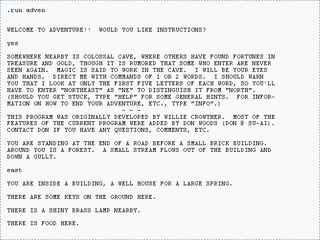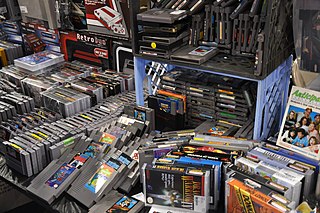Related Research Articles
A fantasy sport is a game, often played using the Internet, where participants assemble imaginary or virtual teams composed of proxies of real players of a professional sport. These teams compete based on the statistical performance of those players in actual games. This performance is converted into points that are compiled and totaled according to a roster selected by each fantasy team's manager. These point systems can be simple enough to be manually calculated by a "league commissioner" who coordinates and manages the overall league, or points can be compiled and calculated using computers tracking actual results of the professional sport. In fantasy sports, as in real sports team owners draft, trade, and cut (drop) players.

A role-playing game is a game in which players assume the roles of characters in a fictional setting. Players take responsibility for acting out these roles within a narrative, either through literal acting or through a process of structured decision-making regarding character development. Actions taken within many games succeed or fail according to a formal system of rules and guidelines.

The history of video games began in the 1950s and 1960s as computer scientists began designing simple games and simulations on minicomputers and mainframes. Spacewar! was developed by Massachusetts Institute of Technology (MIT) student hobbyists in 1962 as one of the first such games on a video display. The first consumer video game hardware was released in the early 1970s. The first home video game console was the Magnavox Odyssey, and the first arcade video games were Computer Space and Pong. After its home console conversions, numerous companies sprang up to capture Pong's success in both the arcade and the home by cloning the game, causing a series of boom and bust cycles due to oversaturation and lack of innovation.
In software engineering, porting is the process of adapting software for the purpose of achieving some form of execution in a computing environment that is different from the one that a given program was originally designed for. The term is also used when software/hardware is changed to make them usable in different environments.
Copy protection, also known as content protection, copy prevention and copy restriction, describes measures to enforce copyright by preventing the reproduction of software, films, music, and other media.

Colossal Cave Adventure is a text-based adventure game, released in 1976 by developer Will Crowther for the PDP-10 mainframe computer. It was expanded upon in 1977 by Don Woods. In the game, the player explores a cave system rumored to be filled with treasure and gold. The game is composed of dozens of locations, and the player moves between these locations and interacts with objects in them by typing one- or two-word commands which are interpreted by the game's natural language input system. The program acts as a narrator, describing the player's location and the results of the player's attempted actions. It is the first well-known example of interactive fiction, as well as the first well-known adventure game, for which it was also the namesake.
Fantasy baseball is a game in which the participants serve as owners and general managers of virtual baseball teams. The competitors select their rosters by participating in a draft in which all relevant Major League Baseball (MLB) players are available. Fantasy points are awarded in weekly matchups based on the actual performances of baseball players in real-world competition. The game typically involves MLB, but can also involve other leagues, such as American college baseball, or leagues in other countries, such as the KBO League.
A sports video game is a video game that simulates the practice of sports. Most sports have been recreated with video games, including team sports, track and field, extreme sports, and combat sports. Some games emphasize playing the sport, whilst others emphasize strategy and sport management. Some, such as Need for Speed, Arch Rivals and Punch-Out!!, satirize the sport for comic effect. This genre has been popular throughout the history of video games and is competitive, just like real-world sports. A number of game series feature the names and characteristics of real teams and players, and are updated annually to reflect real-world changes. The sports genre is one of the oldest genres in gaming history.
Online casinos, also known as virtual casinos or Internet casinos, are online versions of traditional casinos. Online casinos enable gamblers to play and wager on casino games through the Internet. It is a prolific form of online gambling.

Cheating generally describes various actions designed to subvert rules in order to obtain unfair advantages. This includes acts of bribery, cronyism and nepotism in any situation where individuals are given preference using inappropriate criteria. The rules infringed may be explicit, or they may be from an unwritten code of conduct based on morality, ethics or custom, making the identification of cheating conduct a potentially subjective process. Cheating can refer specifically to infidelity. Someone who is known for cheating is referred to as a cheat in British English, and a cheater in American English.

Sports betting is the activity of predicting sports results and placing a wager on the outcome.
Video game packaging refers to the physical storage of the contents of a PC or console game, both for safekeeping and shop display. In the past, a number of materials and packaging designs were used, mostly paperboard or plastic. Today, most physical game releases are shipped in (CD) jewel cases or (DVD) keep cases, with little differences between them.
Sports betting systems are sets of events that when combined for a particular game for a particular sport represent a profitable betting scenario. Since sports betting involves humans, there is no deterministic edge to the house or the gambler. Systems supposedly allow the gambler to have an edge or an advantage.

Virtual League Baseball is a 1995 baseball video game developed and published by Kemco for the Virtual Boy. A sequel, Virtual League Baseball 2, was planned, but later canceled due to the Virtual Boy console's poor sales.
A stock market simulator is computer software that reproduces behavior and features of a stock market, so that a user may practice trading stocks without financial risk. Paper trading, sometimes also called "virtual stock trading", is a simulated trading process in which would-be investors can practice investing without committing money.
TinyMUCK or, more broadly, a MUCK, is a type of user-extendable online text-based role-playing game, designed for role playing and social interaction. Backronyms like "Multi-User Chat/Created/Computer/Character/Carnal Kingdom" and "Multi-User Construction Kit" are sometimes cited, but are not the actual origin of the term; "muck" is simply a play on the term MUD.

A video game console emulator is a type of emulator that allows a computing device to emulate a video game console's hardware and play its games on the emulating platform. More often than not, emulators carry additional features that surpass limitations of the original hardware, such as broader controller compatibility, timescale control, easier access to memory modifications, and unlocking of gameplay features. Emulators are also a useful tool in the development process of homebrew demos and the creation of new games for older, discontinued, or rare consoles.

In computing, an emulator is hardware or software that enables one computer system to behave like another computer system. An emulator typically enables the host system to run software or use peripheral devices designed for the guest system. Emulation refers to the ability of a computer program in an electronic device to emulate another program or device.
A.V.A.T.A.R. MUD is a free, online, massively multiplayer, fantasy, text-based role-playing game, set in a real-time virtual environment. It combines elements of role-playing games, hack and slash style computer games, adventure games and social gaming.

Video game preservation is a form of preservation applied to the video game industry that includes, but is not limited to, digital preservation. Such preservation efforts include archiving development source code and art assets, digital copies of video games, emulation of video game hardware, maintenance and preservation of specialized video game hardware such as arcade games and video game consoles, and digitization of print video game magazines and books prior to the Digital Revolution.
References
- ↑ A paper on this is available on Wikipedia under the name File:1620 baseball.pdf and also at the website http://www.burgy.50megs.com/bbc.htm.
- ↑ Kalb, Bess. "The Lost Founder of Baseball Video Games". Grantland. Retrieved 10 April 2012.
- ↑ Debnath, Sandip; Pennock, David M.; Giles, C. Lee; Lawrence, Steve (2003-06-09). Information incorporation in online in-Game sports betting markets. ACM. pp. 258–259. doi:10.1145/779928.779987. ISBN 158113679X. S2CID 6437374.